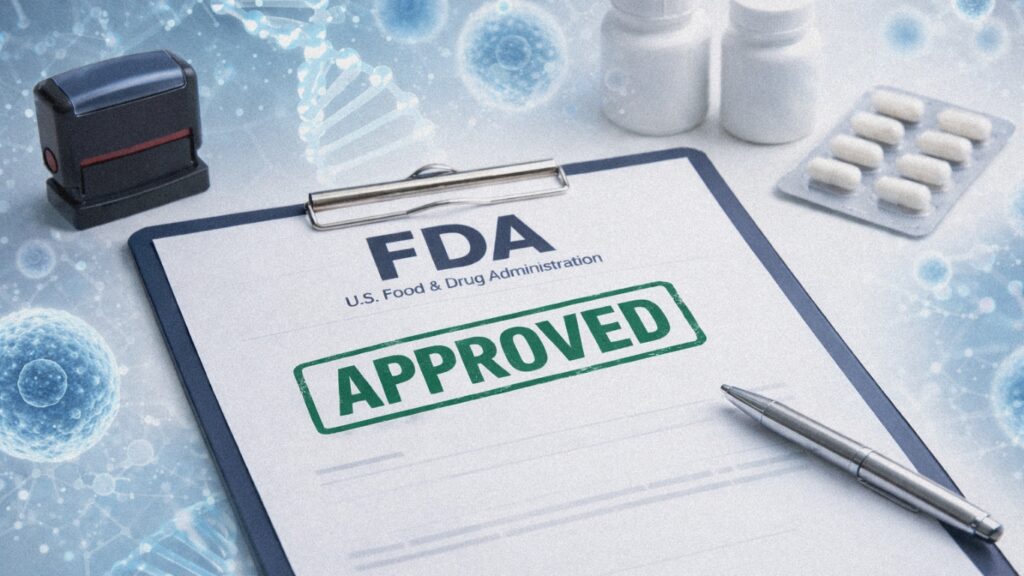The FDA has unveiled its ambitious PreCheck program, a strategic initiative designed to fast-track the regulatory review of pharmaceutical manufacturing facilities and strengthen America’s domestic drug production capabilities. This groundbreaking program comes at a critical time when supply chain vulnerabilities and geopolitical tensions have exposed the risks of over-reliance on foreign pharmaceutical manufacturing, particularly from China and India.
Addressing Supply Chain Vulnerabilities
The COVID-19 pandemic starkly revealed the fragility of global pharmaceutical supply chains, with critical drug shortages affecting hospitals and patients nationwide. The PreCheck program represents the FDA’s proactive response to these vulnerabilities, aiming to incentivize pharmaceutical companies to establish or expand manufacturing operations within the United States.
Under the new framework, qualifying manufacturing facilities will receive expedited regulatory review, potentially reducing approval timelines from months to weeks. This acceleration could prove crucial for companies considering domestic manufacturing investments, as lengthy regulatory processes have historically been a significant barrier to U.S. production facility development.
Political and Economic Context
The PreCheck program launches against a backdrop of increasing political pressure to reduce America’s dependence on foreign pharmaceutical manufacturing. The Trump administration’s proposal for drug import tariffs of up to 250% over 18 months signals a broader policy shift toward protectionist measures designed to incentivize domestic production.
These policy developments reflect growing bipartisan concern about pharmaceutical supply chain security. Both Republican and Democratic legislators have introduced bills aimed at boosting domestic drug manufacturing, recognizing that medical supply independence has become a national security priority.

Program Structure and Requirements
The PreCheck program will prioritize manufacturing facilities that produce critical medications, including those on the FDA’s drug shortage list and medicines deemed essential for public health preparedness. Qualified facilities will benefit from dedicated FDA review teams, accelerated inspection schedules, and streamlined approval processes.
To qualify for PreCheck designation, manufacturing facilities must meet stringent quality and security standards, demonstrate robust supply chain resilience, and commit to maintaining adequate production capacity for critical medications. The program also emphasizes advanced manufacturing technologies and continuous process improvement methodologies.
Industry Response and Investment Implications
Pharmaceutical companies and manufacturing organizations have responded positively to the PreCheck announcement, viewing it as a significant step toward making U.S. manufacturing more competitive with overseas alternatives. The program’s benefits could help offset higher U.S. labor and operational costs that have historically driven production offshore.
Investment analysts predict the program could catalyze billions of dollars in new domestic manufacturing investments over the next decade. Companies like Pfizer, Merck, and Johnson & Johnson have already announced major U.S. manufacturing expansions, and PreCheck could accelerate these trends.
Generic drug manufacturers, in particular, stand to benefit significantly from the program. These companies have faced intense price pressure that often makes overseas manufacturing the only economically viable option. PreCheck’s regulatory incentives could help level the playing field for domestic generic production.
Regulatory Innovation and Modernization
The PreCheck program represents a broader FDA effort to modernize its regulatory approach and embrace innovative review processes. The agency has increasingly adopted risk-based inspection models, digital submission systems, and collaborative review processes that balance speed with safety and efficacy standards.
This regulatory evolution reflects the FDA’s recognition that traditional review timelines may be inadequate for addressing modern supply chain challenges and public health emergencies. The agency’s willingness to experiment with expedited pathways while maintaining rigorous safety standards could serve as a model for other regulatory domains.
Challenges and Implementation Hurdles
Despite its promise, the PreCheck program faces significant implementation challenges. The FDA must hire and train additional inspectors, develop new review processes, and ensure that expedited reviews don’t compromise safety standards. Budget constraints and regulatory complexity could limit the program’s initial scope and effectiveness.
Industry stakeholders also express concerns about the program’s eligibility criteria and application processes. Companies worry that complex qualification requirements could limit participation to only the largest pharmaceutical manufacturers, potentially excluding smaller companies that might otherwise contribute to supply chain diversification.
Long-term Strategic Impact
The PreCheck program could fundamentally reshape the global pharmaceutical manufacturing landscape over the next decade. If successful, it may inspire other countries to develop similar domestic manufacturing incentives, potentially fragmenting previously integrated global supply chains.
For patients and healthcare systems, the program promises greater supply chain reliability and reduced vulnerability to international disruptions. However, the potential for higher drug costs due to more expensive domestic production remains a concern that policymakers will need to address.
Future Outlook
The PreCheck program’s success will depend on sustained political support, adequate FDA funding, and industry participation. Early implementation results will be crucial for determining whether the program can achieve its ambitious goals of reshoring pharmaceutical manufacturing while maintaining drug affordability and quality.
As the program launches, stakeholders across the pharmaceutical industry will be watching closely to see whether regulatory incentives can effectively compete with the economic advantages that have historically favored overseas manufacturing. The outcome could influence not just American drug production, but global pharmaceutical supply chain strategies for years to come.



